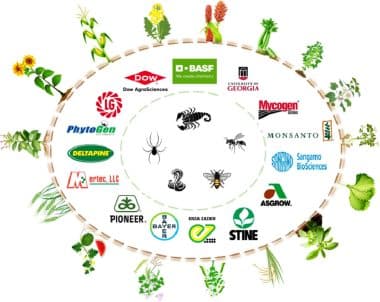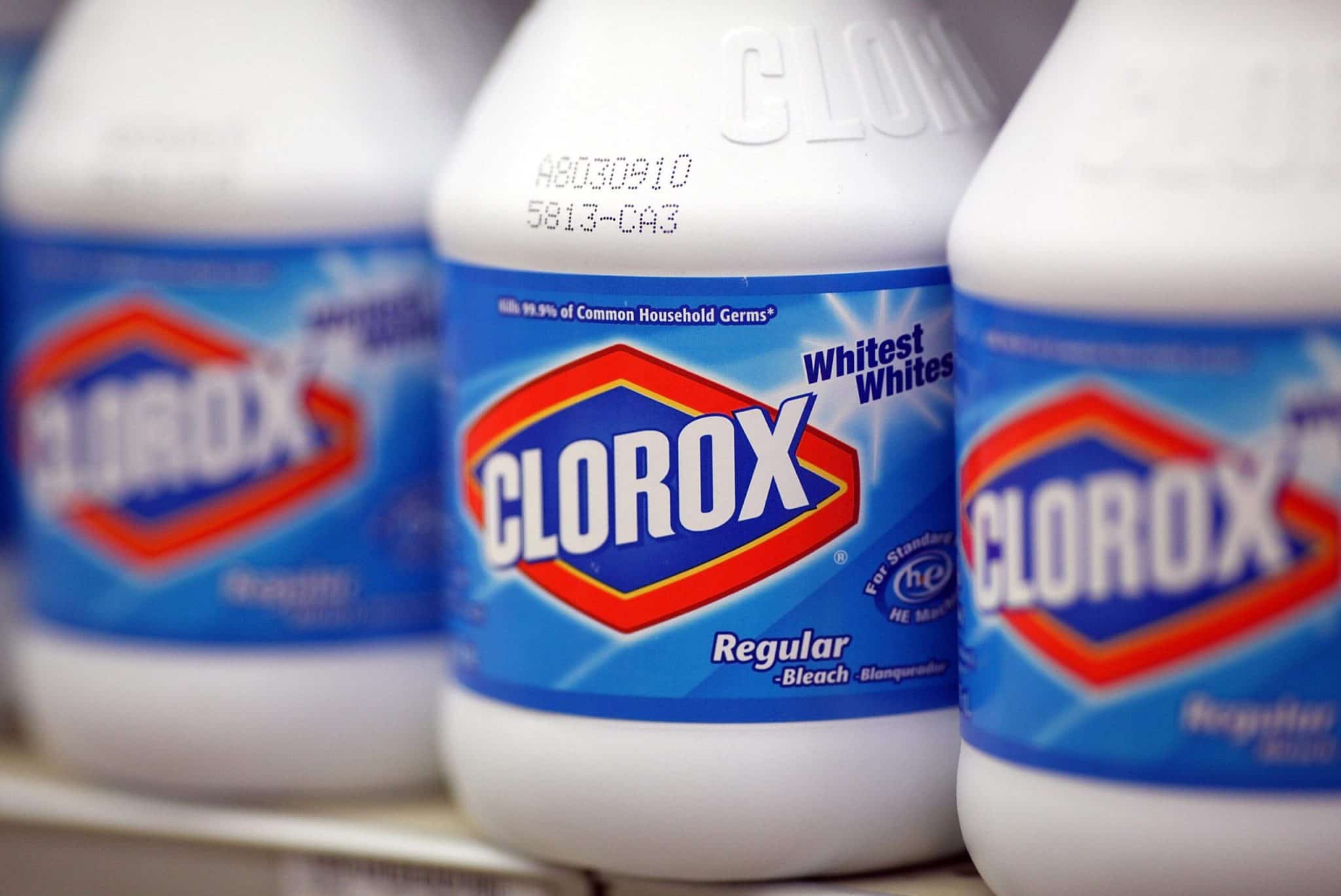The Shocking Truth About Genetically Engineered Vegetable Seeds
Imagine biting into a fresh tomato or serving up a bowl of rice, unaware that deep within the plant’s DNA lies a protein borrowed from a snake, scorpion, or spider. It sounds like science fiction, but it’s not.
According to a peer-reviewed study published in the journal Venoms (November 2021), scientists have been exploring ways to incorporate venom proteins into vegetable seeds as a new line of defense against insects… and those developments may already be far more widespread than the public has been told.
Venom for Dinner? The Study That Started the Alarm
The journal article, titled Applications of Venom Biodiversity in Agriculture, outlines a growing body of research in which venom peptides… proteins derived from creatures like snakes, spiders, and scorpions… are used to engineer pest-resistant plants.
The rationale? These potent proteins can paralyze or kill insect pests on contact, offering an alternative to traditional chemical pesticides.
According to the study’s authors, venom-based biotechnology holds promise for creating what they call “bioinsecticides.” The idea is that plants, through genetic engineering, can internally produce venom proteins that repel or kill attacking pests. It’s been offered by marketers as a more “natural” solution than synthetic pesticides.
But some researchers aren’t convinced… and the backlash is growing.
Behind the Genetic Curtain: Who’s Engineering These Seeds?
The paper’s graphics, recently circulated in an exposé presentation that’s gone viral, reveal a startling matrix: color-coded dots representing venom types (red), corporations and universities (blue), and the genetically engineered crops (green) that carry these toxic traits.
Among the companies named are agricultural giants like Bayer, Monsanto, BASF, and even food processors like Frito-Lay. The crops? Everything from rice and corn to potatoes, melons, lettuce, and even stevia.
In this diagram, you’ll see lines connecting snake venom to cabbage, wasp venom to soybeans, and spider venom to tomatoes. Institutions like Louisiana State University and the University of Arkansas appear alongside multinational corporations in holding patents related to venom-based seed engineering.
It’s Legal To Sell Venomized “Seeds Of Deception” In The U.S.
Which raises the question: If this technology is so beneficial, why isn’t the public being informed?
One reason is that by law, GMO seed engineering labels are not required in the U.S. In fact, the regulations regarding labeling of genetically modified organism (GMO) seeds, including “venomized” vegetable seeds, vary by country. Here are some key points for a few regions:
- United States: As of 2023, the U.S. Department of Agriculture (USDA) and the Food and Drug Administration (FDA) do not require mandatory labeling of GMO seeds for consumers. However, the USDA’s National Bioengineered Food Disclosure Standard requires labeling of bioengineered foods for human consumption, but this does not specifically address seeds.
- European Union: The EU has strict regulations on GMOs. Any product containing GMOs must be labeled as such, including seeds. This includes both the seeds themselves and any food products derived from GMOs.
- Canada: Canada has a voluntary labeling system for GMOs. While there is no mandatory requirement to label GMO seeds, some companies may choose to do so.
- Australia and New Zealand: These countries have a joint food standards code that requires labeling of GMOs in food products, but the regulations for seeds are less stringent and may vary by state.
- Japan: Japan requires labeling of GMOs in food products, and while there are regulations for seeds, they are more focused on the import and cultivation of GMOs rather than consumer labeling.
What Are We Really Eating—and Why Weren’t We Told?
The authors of the Venoms study state that this approach has the potential to reduce environmental impact by limiting the need for external pesticide applications. But the practical result is that the vegetable plant itself becomes toxic to insects. And since these GMO proteins are produced systemically throughout the plant, they end up in the leaves, stalks, roots, and the parts we eat.
Again, there’s no requirement for food labels to disclose whether venom-based traits are present in genetically modified organisms (GMOs). Consumers who are concerned about ingesting novel proteins… especially those derived from animal venoms… are left in the dark.
Advocates of transparency, including independent researchers and public figures like Dr. Bryan Ardis and G. Edward Griffin, have raised red flags about this trend, warning that such extreme forms of genetic engineering could have unintended consequences, both ecological and medical.
From Biotech to the Buffet: Dangerous Venoms in the Food Chain
The biotechnology industry argues that venom-derived proteins used in agriculture are carefully selected for specificity… meaning they are lethal to pests, but supposedly safe for humans.
Still, others point out that these are the same compounds being studied for pharmaceutical use due to their profound effects on biological systems.
Some venom components, like Exendin-4 (found in the venom of the Gila monster), are already being used in drugs like Ozempic and Wegovy to manage diabetes and weight loss. It should be noted that both Ozempic and Wegovy do carry black box warnings, which are the most serious type of warning from the U.S. Food and Drug Administration (FDA).
The black box warning for these medications primarily concerns the increased risk of thyroid C-cell tumors. Specifically, the warning states that semaglutide causes thyroid C-cell tumors in rodents at clinically relevant exposures. At this point no one really knows whether semaglutide causes thyroid C-cell tumors, including medullary thyroid carcinoma (MTC), in humans, as the human relevance of semaglutide-induced rodent thyroid C-cell tumors has not been determined.
While this is often touted as a breakthrough in medicine, critics argue that venom uses raise even more concerns when similar proteins are being embedded in our food supply without public knowledge or long-term health studies. Let’s say that again… where are the long-term studies?
“Trust Us, It’s Safe”: The PR Problem in Modern Agriculture
Supporters of venom bioengineering say the benefits include fewer pesticide applications, greater crop and garden yields, and reduced environmental toxicity. But the rollout has been cloaked in silence.
There’s precious little public awareness, no major campaigns informing consumers, and apparently no labeling requirements. Even farmers may be unaware of the full implications of the seeds they’re planting if patents and proprietary protections keep those details hidden.
So now we’ll have venomous running into our lakes and streams instead of pesticides? And what about the influence of plant-produced venoms on soil bacteria and fungi? Where are the tests? Where are the studies?
Now, when consumers are eventually informed… through whistleblower presentations, leaked graphics, or patent searches… the reaction is one of disbelief, followed by outrage.
The Case for Transparency and Consumer Choice
What’s clear is this: whether you support or oppose genetically engineered crops, the use of venom proteins raises serious ethical, medical, and ecological questions. Should a food company like Frito-Lay own patents on venom-producing potatoes?
Should universities be licensing scorpion-laced rice to the global marketplace? Should consumers be told what’s in their food before they eat it?
If biotech firms and public institutions are confident in the safety and benefits of this technology, they should welcome informed debate and transparent labeling. Anything less begins to look less like innovation and more like concealment.
This all reminds me of COVID and the “safe and effective” claim by the vaccine companies, the media, and our own government. Remember too, the paid for attack by big money “fact checkers” against anyone that even questioned the big money narrative. Lies, lies and more lies. Watch a paradigmatic replay of this deception in the new GMO seeds of deception narrative.
Final Bite: Are We Guinea Pigs in a Global Experiment?
The application of venom biotechnology in agriculture may be one of the most shocking developments in food science that no one told you about. It touches on everything from food safety and corporate power to medical ethics and environmental stewardship.
As this technology continues to advance without guardrails, one thing is certain: the public deserves a seat at the table… and a full understanding of what’s being served. The last thing you want for your family is a harvest that looks great but is toxic.
Listen until we know more, use caution. Buy and plant heirloom seeds. We sell them, but so do a lot of other good companies.











